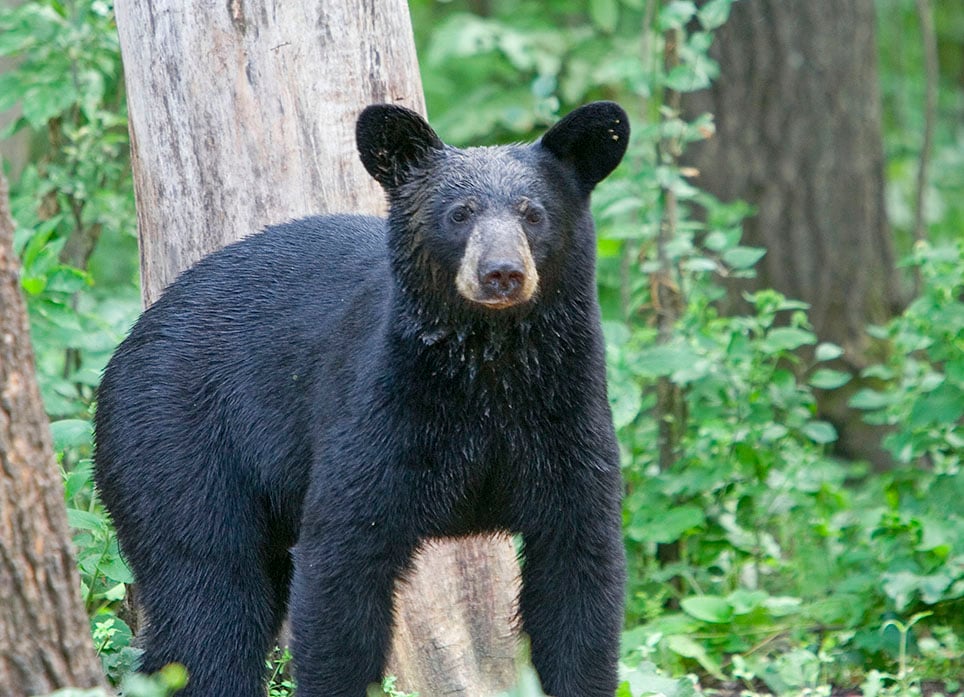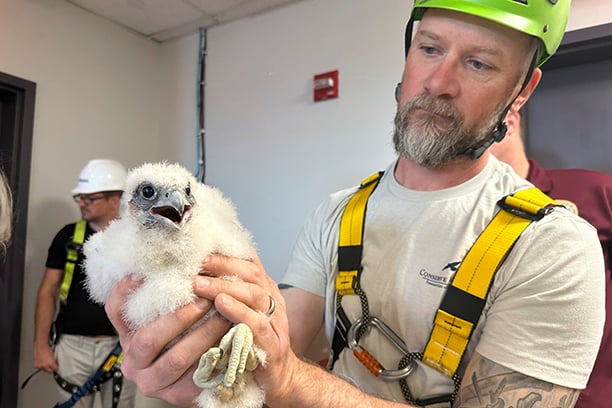Beyond Minnesota: ‘Stand Ground’ bill regarding bears headed to governor’s desk in Florida – Outdoor News

TALLAHASSEE, Fla. (AP) — So long as they don’t eat them, stuff them or turn them into hats for the British royal guard, Florida residents will be allowed to kill black bears threatening them on their property with no consequences under a bill sent to Republican Gov. Ron DeSantis.
The once-threatened Florida black bear population has increasingly wandered into neighborhoods and private property, especially in more rural areas of north and central Florida. The legislation is similar to the “stand your ground” law that allows people to use deadly force against other people threatening them.
Supporters say Floridians have the right to defend themselves, their families, pets and property against bears coming around looking for food. But opponents fear people will become trigger happy and not take other precautions against bears.
“I’m not in favor of enabling the mass murder of bears,” said Democratic Rep. Katherine Waldron. “This bill is based on fear and not facts. Make no mistake, this bill was created by and for people looking for any excuse to be able to hunt and kill a bear.”
She noted that the bill gives bear killers 24 hours to notify the state Fish and Wildlife Conservation Commission of their action, enough time to come up with a self-defense excuse. She argued that they won’t need much evidence.
“Bears will not bother you if you behave responsibly,” she said. “Zero people have been murdered by black bears in our state. You are 60,000 times more likely to be murdered by another human.”
MORE COVERAGE FROM OUTDOOR NEWS:
Carp World Championship not coming to New York’s Onondaga Lake in 2027
But Republican Rep. Jason Shoaf said wildlife officials have assured him they will investigate every bear killing thoroughly and won’t tolerate people shooting bears out of trees or after luring them with food.
“They will be watching diligently once this bill is passed to make an example of the first person who tries to use this as some type of defense, and I’ll be there at the trial to make sure they get the justice they deserve,” Shoaf said.
People who kill a bear wouldn’t be allowed to keep or sell any meat or parts of the bear. That means no bear rugs or selling them to the company that makes the famous, black bearskin hats worn by guards outside London’s Buckingham Palace.
Florida’s bear population has rebounded after declining to about 300 in the 1970s and is now estimated to exceed 4,000. The state allowed a limited bear hunt in 2015, when the population was estimated at 3,500. More than 3,200 hunters purchased permits to participate.
The hunt was supposed to last up to a month, but ended after 304 bears were killed in two days. The state backed off the idea of holding more.
The state does give advice on what people should do if they have a close encounter with a bear.
“Remain standing upright, back up slowly and speak to the bear in a calm, assertive voice,” the conservation commission says on it’s website. “Make sure that you are in a safe area and that the bear has a clear escape route. Then, make noise or bang pots and pans to scare the bear away. Do NOT turn your back, play dead, climb a tree or run.”
LOUISIANA
Reward, $15,000, Offered for Info About Person Who Killed Whooping Crane
Mamou, La. (AP) — A $15,000 reward is now being offered to find out who killed a whooping crane in south Louisiana in January, officials said.
The U.S. Fish and Wildlife Service, in a news release, announced last week that $5,000 is available for information regarding the endangered bird, which was found dead Jan. 9 in Evangeline Parish along Besi Lane in Mamou, La. On March 11, the Center for Biological Diversity boosted the amount by $10,000.
A necropsy determined that the juvenile bird was shot, resulting in a spinal fracture and internal bleeding.
Whooping cranes are endangered under the 1918 Migratory Bird Treaty Act and the Endangered Species Act of 1973. It is illegal to harm the species in any way. The reward is for information leading to the arrest or criminal conviction of those involved.
“It’s frustrating,” said Richard Dunn, a curator at Freeport McMoran Audubon Species Survival Center. “It’s bad enough to hear a bird got predated or hit a power line. Something as simple as it got shot is what kills us the most.”
The Survival Center, based in New Orleans, has worked to improve the whooping crane population by breeding and raising cranes to be reintroduced into the wild.
State officials and groups such as the Audubon Nature Institute have gone to great lengths to reintroduce the species. As of 2023, 85 whooping cranes exist in Louisiana. Each bird reintroduced into the wild takes months of care, and nearly $33,000 is spent caring per bird, Dunn said.
Federal and state agencies began Louisiana’s reintroduction in 2011, when 10 were released at White Lake to develop the flock; the first chick hatched in 2016. Since 2011, the state has seen 11 cranes killed.






